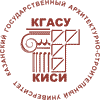About the authors
| First name, Middle name, Last name, Scientific degree, Scientific rank, Current position. Full and brief name of the organization, The organization address. | Khusin A.F. – candidate of technical sciences, assistant E-mail: This e-mail address is being protected from spambots. You need JavaScript enabled to view it Kazan State University of Architecture and Engineering The organization address: 420043, Russia, Kazan, Zelenaya st., 1 |
| Title of the article | Kinetics of heat release during hydration of cement, a modified integrated nanomodified additives |
| Abstract. | When the cement hydration heat occurs, which is set by changing the temperature of the cement paste, which is immediately after mixing is placed in a thermos. In thin-walled concrete structures such as floor slabs, wall panels, etc., this heat dissipates relatively quickly and does not appreciably affect the structure formation of cement stone. The problem of heat dissipation has attracted the attention of researchers due to the fact that in massive concrete hydraulic and other types of structures significantly increases the temperature up to values exceeding approximately 323K temperature of concrete when it is laid. The increase in temperature causes corresponding voltages, which are the result of uneven heating and cooling of concrete; when a small thermal conductivity of the inner layers of the array sections is cooled more slowly on the surface. Large thermal stresses can be the result of cracking. Experimental research of kinetics of heat release during the hydration of Portland cement without additives cement of Volsk plant in presence of nanomodified additives comprehensive by method of thermos calorimetry. The introduction of additives, modified multiwall carbon nanotubes «Taunit» and «Graphistrength» leads to higher temperatures of heat release during hydration of cement to 71,5 and 74 oC respectively. The most intensive heat release occurs in the time period of 8-11 hours. In this period the hydration temperature increased from about 30 to 75 oC. For comparison, the unmodified temperature of hydration of cement during the period of 5-11 hours increased from 25 to 62 oC. |
| Keywords. | carbon nanotubes, cement stone, hydration, heat, complex additive. |
| For citations: | Khuzin A.F. Kinetics of heat release during hydration of cement, a modified integrated nanomodified additives // Izvestiya KGASU. 2016. №1(35) P.216-220. |
















